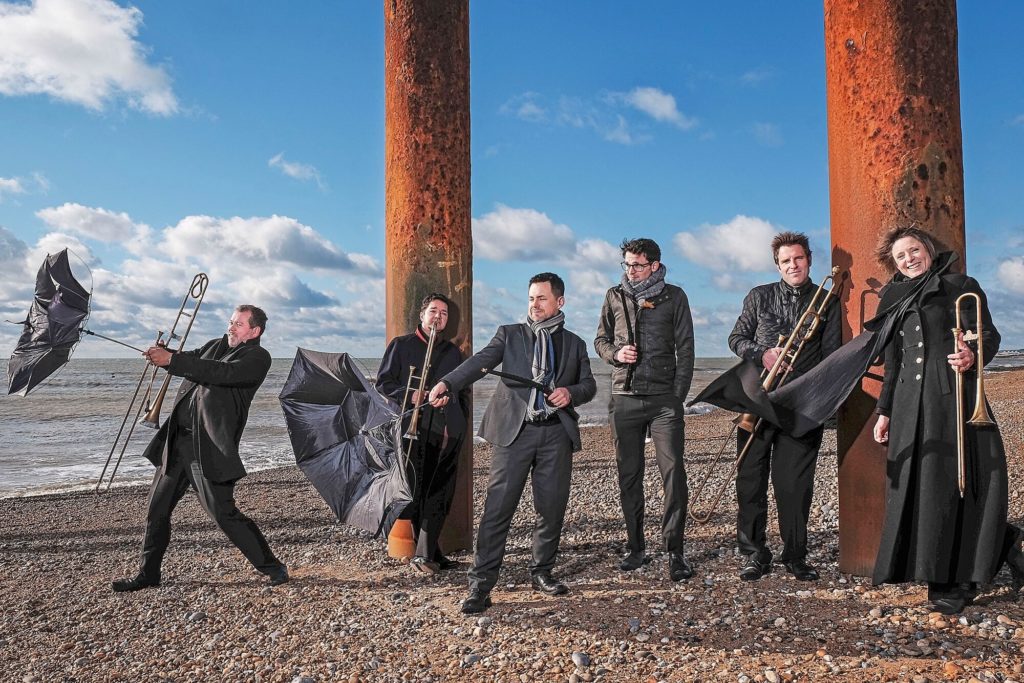
NCEM Young Composers Award 2023, English Cornett and Sackbut Ensemble, National Centre for Early Music, York
EIGHT finalists, selected from more than 70 composers under the age of 25, enjoyed a day of workshops with the English Cornett and Sackbut Ensemble (ECSE) and composer Liz Dilnot Johnson.
The outcome was ECSE’s evening concert, which presented the new scores interwoven with 15th and 16th century Spanish works.
This was not merely a satisfying melange. It gave context to the entire enterprise. More than that, it allowed ECSE to introduce the two traditional ‘Spanish’ tunes on one of which the competitors were asked to base their pieces: La Spagna (actually an Italian bassadanza) or Ayo Visto La Mappamundi (I Have Seen The Map Of The World).
It needs to be said at once that the six members of ECSE played superbly, on two cornetts, three sackbuts and an organ, often dealing with technical problems quite outside their comfort zone.
Three of their contributions were lithe organ solos from Silas Wollston. The full group’s highlight was in Counterpoints on La Spagna, taken from the few that survive from the 120 or so written by Constanzo Festa.
Three composers chose La Spagna as their inspiration. Mollie Carlyle’s Not Quite Music To Dance To started slowly, then grew in balletic activity, which included three brief solos, the instruments uniting in a closing unison.
Tommaso Bailo’s Out Of The Cradle Endlessly Rocking – the title of a Walt Whitman poem – was sectional, with detectable motifs, moving from a diffuse start to a racy close. Edwin de Nicolò’s Alameda And Toccata slowly developed into jazzy syncopation, nicely shaded, before a quieter resolution.
The remaining five chose the Mappamundi tune. Rachel Sunter’s Nada Que Perder (Nothing To Lose) also went for syncopation, mostly in the top two sackbuts, against a running counterpoint in the cornetts.
Reese Carly Manglicmot’s Fly! used a number of pedal points to underline its various takes on flight, before coming to an abrupt end. Sam Meredith’s piece employed the full Mappamundi title in clearly structured counterpoint, including the organ, before a bluesy close.
Owen Spafford’s Bog Bodies – mummified cadavers found in peat bogs – appealed to local tastes by adding fragments of the Lyke-Wake Dirge to his underlying motif, contrasting the cornetts against the sackbuts and using quarter-tones evocatively.
Jacob Jordan’s A Ceremonial Dance For Mice, highly syncopated throughout, especially in the sackbuts, stuck to a compelling trochaic rhythm.
These last two were declared winners at the end of the evening, Spafford in the 19 to 25 age group, Jordan – the youngest finalist (17 this year) – in the 18 and under category. But all eight finalists displayed distinctive talents and none of the pieces lacked interest, quite the reverse.
These are all names to watch, without exception. And music of this calibre is breathing new life into period instrument techniques.
The concert was streamed and may be viewed at http://www.youngcomposersaward.co.uk . It also will be recorded for broadcast on BBC Radio 3’s Early Music Show on Sunday, November 26.
Review by Martin Dreyer
